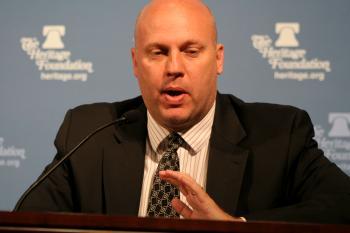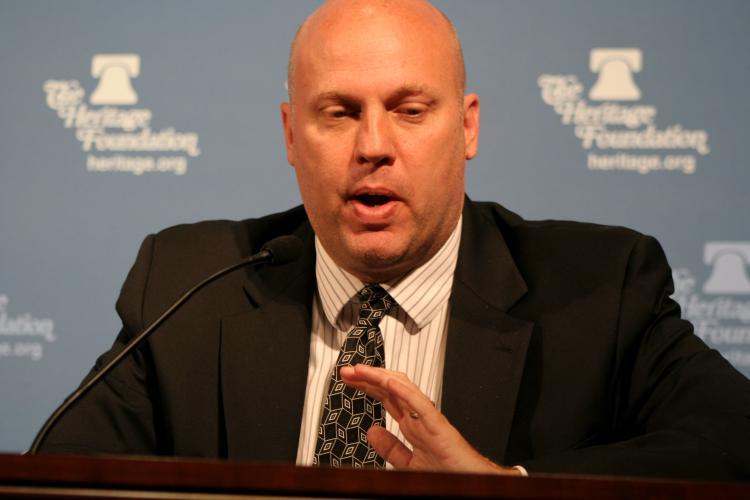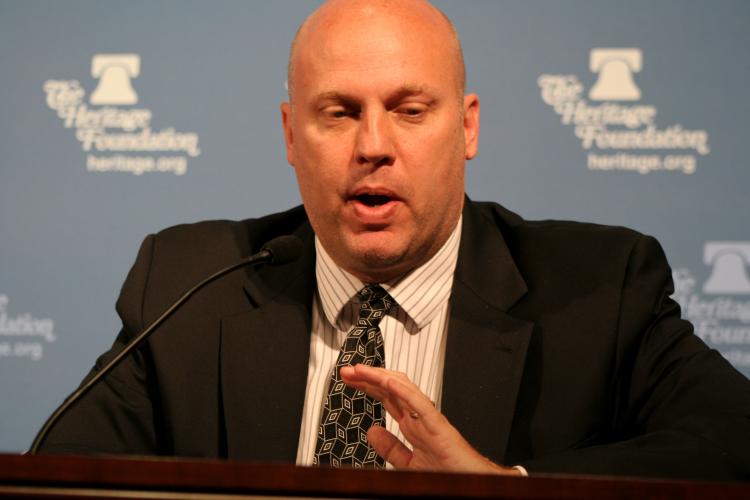Chinese Currency, Congressional Hearing Experts Urge Action
Chinese Currency Manipulation is “costing the United States jobs and economic growth” says congressional hearing.

Dr. Derek Scissors doubts that punishing China for undervaluing its currency would do anything about the trade deficit or create jobs. He spoke Sept. 14 at the Heritage Foundation, where he is a Research Fellow. Gary Feuerberg/ Epoch Times
|Updated:





